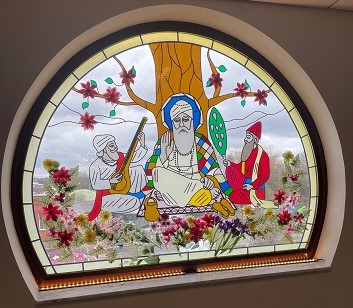Choose a Subject
‘Religious Education explores big questions about life, to find out what people believe and what difference this makes to how they live, so that pupils can make sense of religion, reflecting on their own ideas and ways of living.’
At Parkside Middle School we aim to provide an RE curriculum that is ambitious, challenging, enriching and inclusive. We recognise that RE can be a first step to recognising and appreciating diversity and want Parkside pupils to learn about things that matter in the lives of local people, people within our country and in the wider world. RE can support pupils in developing ideas, values and identifies and we encourage our pupils to express their insights and learn to agree or disagree with others respectfully. At Parkside, Religious Education contributes dynamically to our pupil’s education and life by provoking challenging questions about meaning and purpose in life, beliefs about God, ultimate reality, issues of right and wrong and what it means to be human. In RE, our pupils learn about religions and worldviews in local, national, and global contexts, to discover, explore and consider different answers to these questions. They learn to weigh up the value of wisdom from different sources, to develop and express their insights in response, and to agree or disagree respectfully. Parkside pupils gain and deploy the skills needed to understand, interpret, and evaluate texts, sources of wisdom and authority and other evidence. Also, they learn to articulate clearly and coherently their personal beliefs, ideas, values, and experiences while respecting the right of others to differ. We emphasise the importance of Big Ideas and Big Concepts through powerful texts, discussions, debates, artwork, famous people, and topical news related reports. Our pupils are ‘challenge seeking species’ who will flourish in their RE lessons, speaking, reading, and writing like theologians.
“Religious education encourages us to learn from different religions, beliefs, values, and traditions while exploring our own beliefs and questions of meaning. RE matters because you can learn to respect and understand different religions and how other people live their lives.” Parkside pupil
The word religion has its roots in the Latin ‘to bind’, and it is the sacred texts, practices, literature, stories and arts that bind communities within a tradition together.
The teaching and learning approach has three core elements, which are woven together to provide breadth and balance within teaching and learning about religions and beliefs, underpinning the aims of RE. Teaching and learning in the classroom will encompass all three elements, allowing for overlap between elements as suits the religion, concept and question being explored. These elements set the context for open exploration of religion and belief. They offer a structure through which our pupils can encounter diverse religious traditions alongside non-religious worldviews – which reflect the backgrounds of many pupils in our school. The elements present a broad and flexible strategy that allows for different traditions to be treated with integrity. These elements offer a route through each unit while also allowing for a range of questions reflecting different approaches, for example, from religious studies, philosophy, sociology, ethics, and theology.
The curriculum for RE at Parkside aims to ensure that all pupils:
1. Make sense of a range of religious and non-religious beliefs, so that they can:
- identify, describe, explain and analyse beliefs and concepts in the context of living religions, using appropriate vocabulary.
- explain how and why these beliefs are understood in different ways, by individuals and within communities.
- recognise how and why sources of authority (e.g. texts, teachings, traditions, leaders) are used, expressed and interpreted in different ways, developing skills of interpretation.
2. Understand the impact and significance of religious and non-religious beliefs, so that they can:
- examine and explain how and why people express their beliefs in diverse ways.
- recognise and account for ways in which people put their beliefs into action in diverse ways, in their everyday lives, within their communities and in the wider world.
- appreciate and appraise the significance of different ways of life and ways of expressing meaning.
3. Make connections between religious and non-religious beliefs, concepts, practices and ideas studied, so that they can:
- evaluate, reflect on and enquire into key concepts and questions studied, responding thoughtfully and creatively, giving good reasons for their responses.challenge the ideas studied, and allow the ideas studied to challenge their own thinking, articulating beliefs, values and commitments clearly in response.
- discern possible connections between the ideas studied and their own ways of understanding the world, expressing their critical responses and personal reflections with increasing clarity and understanding.
This syllabus is designed to support schools in developing and delivering excellence in RE. It responds to national calls for deepening pupils’ knowledge about religions and for developing their ‘religious literacy’. It does this by studying one religion at a time (‘systematic’ units), and then including ‘thematic’ units, which build on learning by comparing the religions, beliefs and practices studied.
Religious Traditions Studied
KS2 - Christians, Muslims, Hindus, and consideration of non-religious world-views.
KS3 - Christians, Muslims, Sikhs, Buddhists and consideration of non-religious world-views.
It is every pupil’s entitlement to have access to the key concept underpinning religions and beliefs, whether they are of that tradition, or not. The business of religious education is an exploration of the influence of religions and beliefs on individuals, culture, behaviours and national life.
What is distinctive about Religious Education at Parkside Middle School:
Choose a Year Group
Year 5
Autumn
Transition Module
The Big Story of the Bible.
Was Jesus the Messiah?
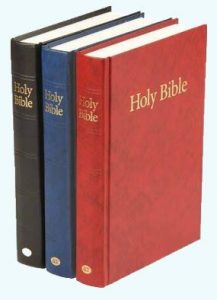
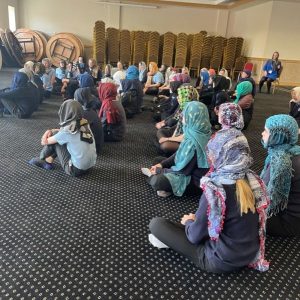
Spring
What does it mean if Christians believe God is holy and loving?
What does it mean to be a Muslim in Britain today? [Tawhid/iman/ibadah]
Summer
What matters most to Humanists and Christians?
What did Jesus do to save human beings?

Year 6
Autumn
Creation and science: conflicting or complementary?
Why do Hindus want to be good?

Spring
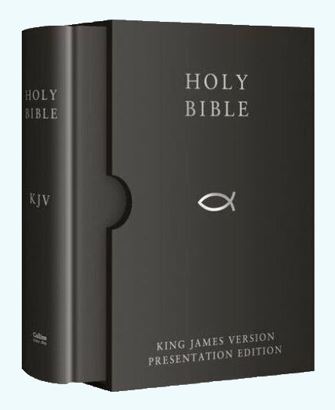
Why is the Torah so important to Jewish people? [God/Torah]
What difference does the resurrection make to Christians?
Summer
What do religions say to us when life gets hard?
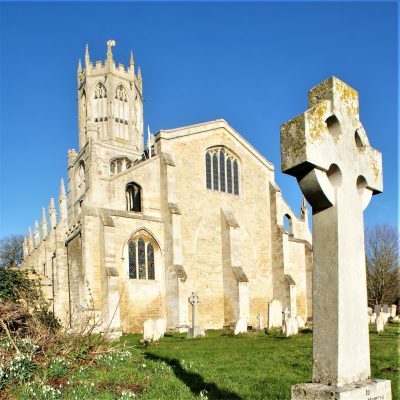
Year 7
Autumn
What shapes our Worldview?
What is good and what is challenging about being a Jewish teenager in the UK today?

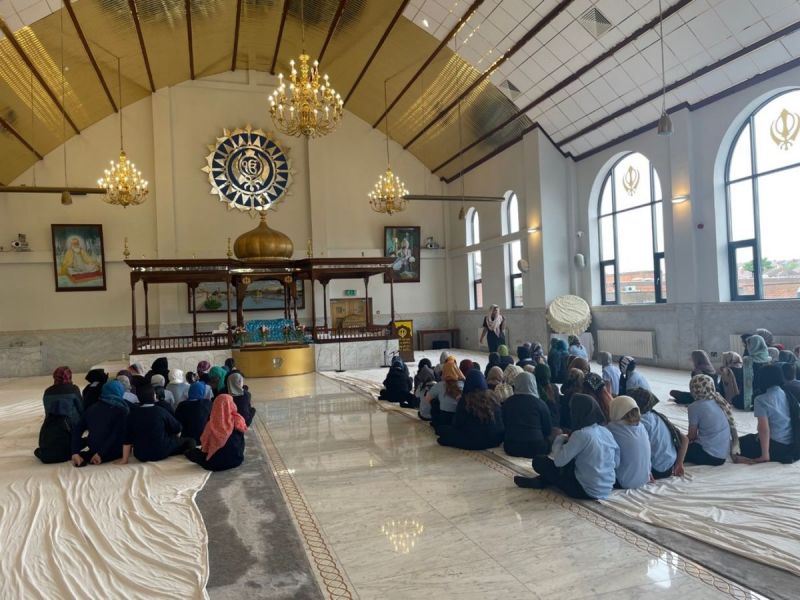
Spring
How are Sikh teachings on equality and service put into practice today?
What is good and what is challenging about being a Muslim teenager in Britain today?
Summer
Does the world need prophets today?
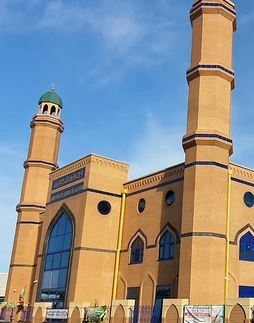
Year 8
Autumn
If God is Trinity, what does that mean for Christians?
Why are people good and bad?

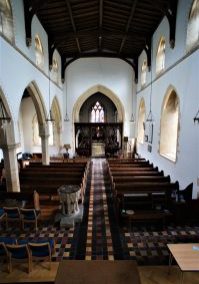
Spring
What do Christians believe about God’s heavenly kingdom and life after death?
Should happiness be the purpose of life? (Buddhists, Christians, non-religious)
Summer
How can people express the spiritual through the arts?
